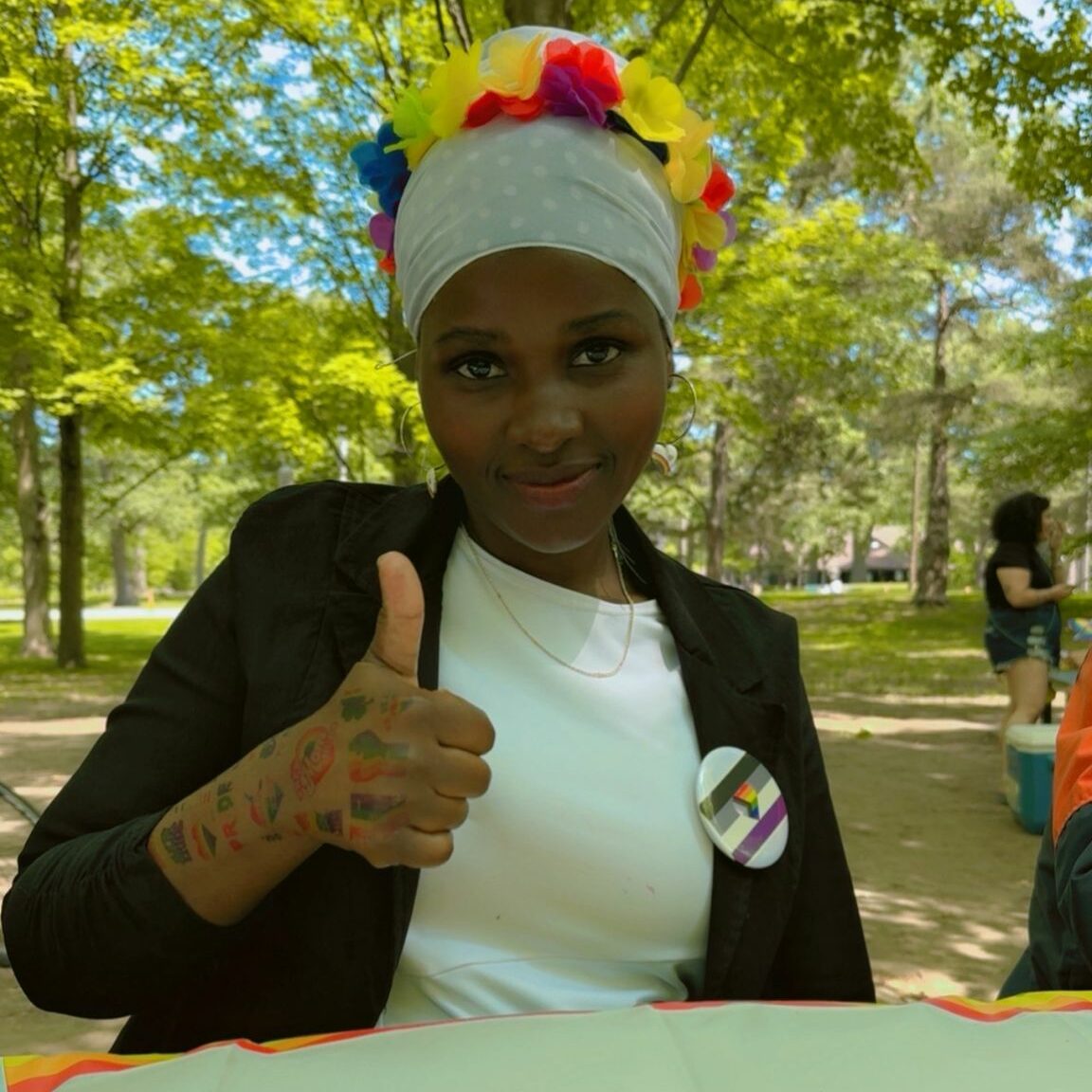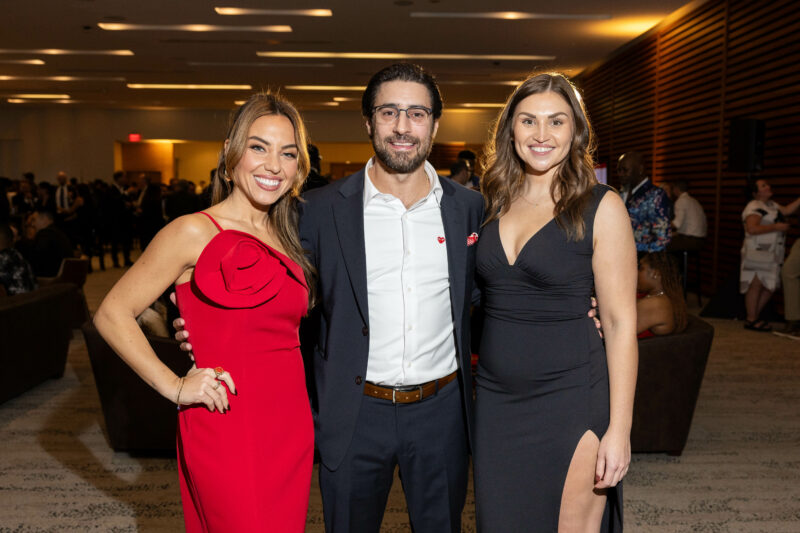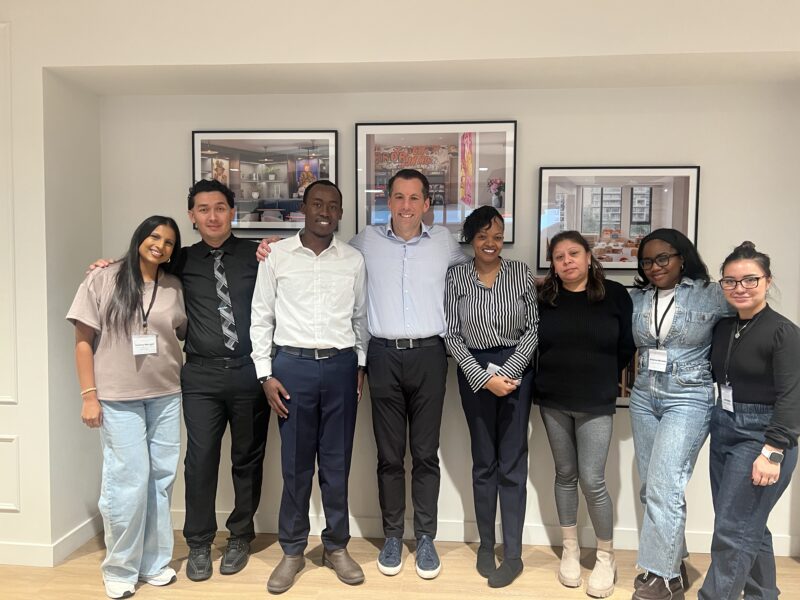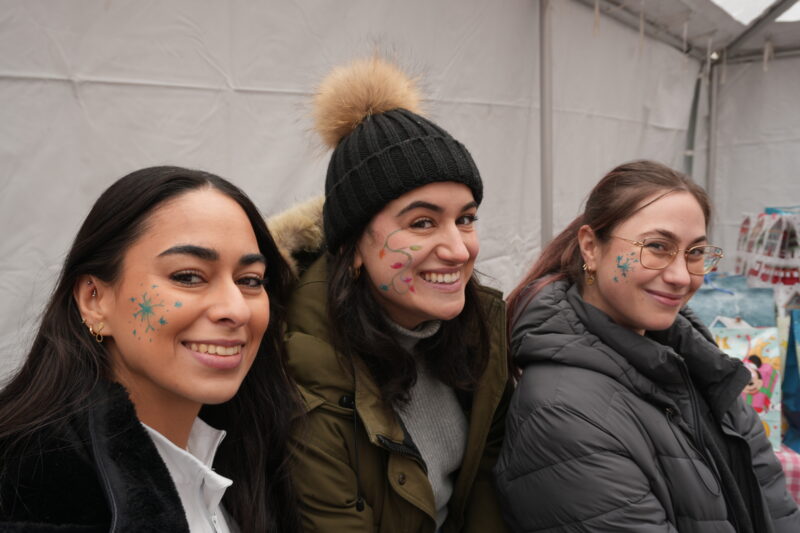At Homes First, every story reminds us of the importance of community, learning, and respect. As we celebrate Truth and Reconciliation Day, we share the story of Rukia, a newcomer reflecting on Indigenous land and reconciliation.
When Rukia arrived in Toronto from Uganda, she was looking for safety, stability, and a future. She found shelter at Pacewood, where she began to rebuild her life. A LGBTQIA+ mother of two and a student in a Personal Support Worker program, Rukia is thoughtful, driven, and curious about the world around her.

It wasn’t until a community barbecue at the shelter that something shifted in how Rukia understood her new home. That day, she stood up and read a Land Acknowledgement aloud (from the lens of a refugee woman), which reads as follows:
“As refugees and/or newcomers, or second-generation Canadians, we join a country that has a complex and painful history. The land we live on belongs to Indigenous Peoples who have been here for thousands of years. By learning and practicing Land Acknowledgements and the Truth and Reconciliation Commission’s Calls to Action, we honour that history, stand in solidarity with Indigenous communities, and become part of building a better, more just future for everyone in Canada.”
“It was really, really good, but also emotional” she said. “As a newcomer, it helped me understand that there were people here before us. People who fought for this land. People who are still fighting. This land belongs to them.”
Rukia grew quiet, then added: “It’s painful. The Indigenous people are still suffering so much. But reading that acknowledgement gave me a way to show respect. To remember. And to learn.”
Her story echoes that of many refugees, coming from a place of displacement, then discovering the long history of displacement in Canada too. In her home country of Uganda, her own people ‘The Baganda’, also lost land to government decisions that stripped them of their territory. She sees clear parallels.
“We keep fighting to get our land back. That’s why I understand a little of what Indigenous people go through.”
For Rukia, solidarity isn’t just a word—it’s action. It means learning about Indigenous cultures, listening to their stories, and advocating for their rights. It means knowing that reconciliation is part of being a good guest in someone else’s home.
“Indigenous people should be the first priority for housing, for healthcare. This is their land. They shouldn’t be struggling the most.”
Rukia’s first deeper understanding of Indigenous history came through an unexpected place: her English class at an adult learning centre in Kipling. It was there that she learned about residential schools and the colonial effort to erase Indigenous identity.
“I thought I was just going to learn English. But we learned about Indigenous people, their stories, their poems. One poet said, ‘They silenced my voice, but now I have a voice again.’ That stayed with me.”
The poem Rukia refers to is “I Lost My Talk” by Mi’kmaw poet Rita Joe, first published in 1978. The piece reflects Joe’s experience at the Shubenacadie Indian Residential School, where she lost her native language and culture – a powerful expression of loss and the struggle to reclaim identity.
Rukia believes that shelters and schools have a vital role to play in reconciliation, especially when it comes to engaging newcomers. She suggests:
- Hosting workshops led by Indigenous facilitators,
- Taking residents to cultural festivals or drumming circles, and
- Creating safe spaces where refugees and Indigenous peoples can share, learn, and build community together.
“I went to a workshop once where an Indigenous woman showed us how they make beads, how they share meals. It made everything real. You don’t forget something like that.”
Rukia still carries the words of the Land Acknowledgement with her. She knows now that it’s not just a sentence read at public events – it’s a commitment to learn, to honour, and to stand alongside those who have fought to remain visible.
“If I don’t acknowledge the people who built this land, that wouldn’t be fair. I want to learn more. And I want other newcomers to learn too, so we can walk together.”
Homes First acknowledges that the land on which we are meeting is the traditional territory of many nations, including the Mississaugas of the Credit, the Anishnabeg, the Chippewa, the Haudenosaunee, and the Wendat peoples. This land is now home to many diverse First Nations, Inuit, and Métis peoples. We also acknowledge that Toronto is covered by Treaty 13 with the Mississaugas of the Credit and the Williams Treaty, signed with multiple Mississaugas and Chippewa bands.
To learn more how you can get involved to support Homes First programs, visit: www.homesfirst.on.ca/get-involved/


